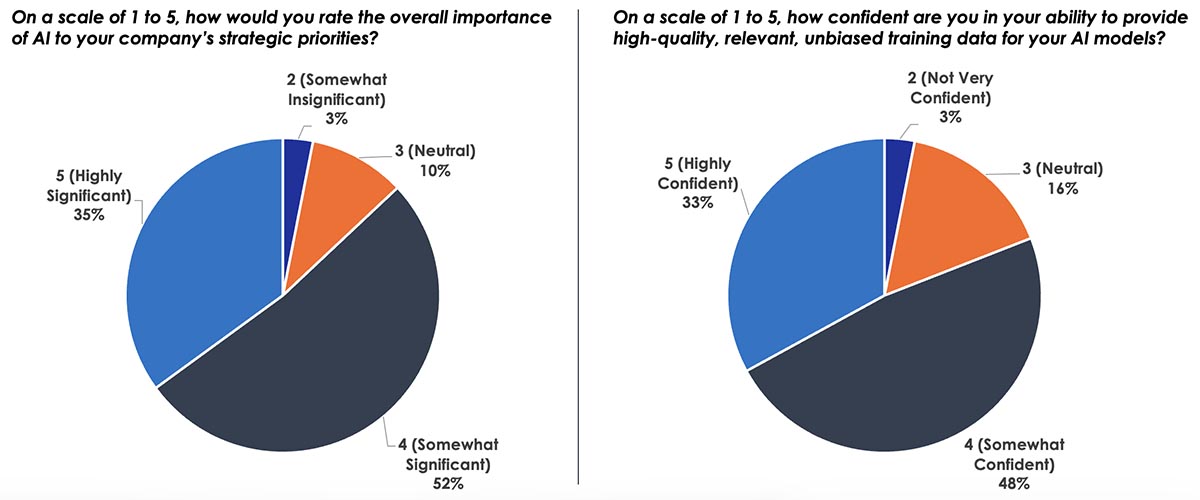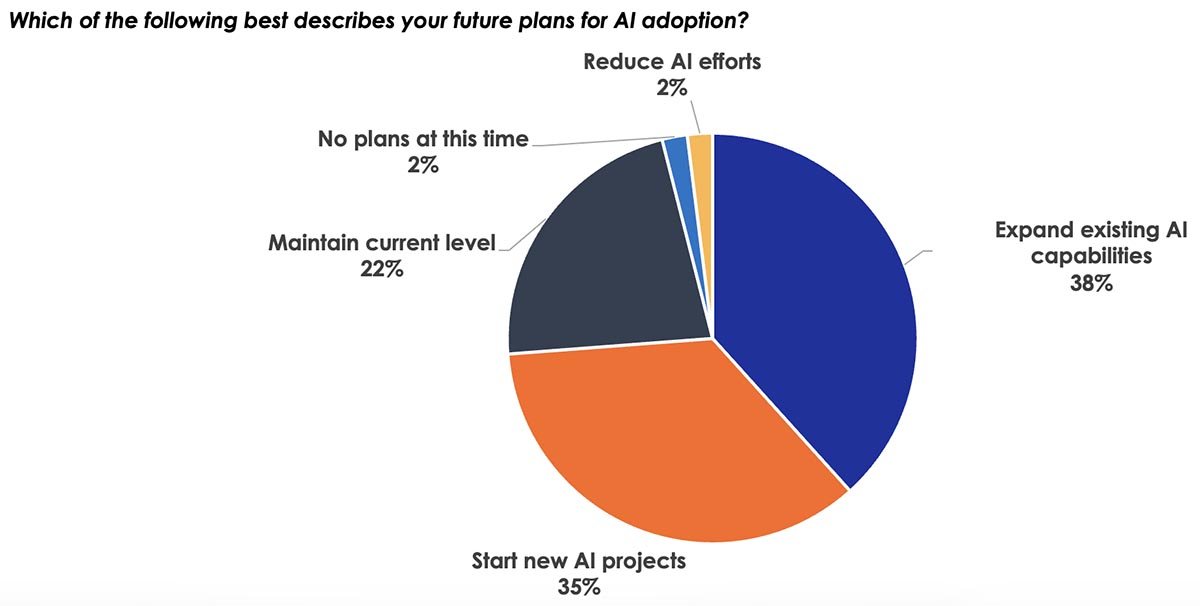- AI cannot simply be a technological experiment; it must be approached as a core component of a sound business strategy.
- There is a critical need for improved data governance and quality assurance to ensure that AI systems deliver reliable and fair outcomes.
- Without robust data governance, the risk of biased or unreliable AI outputs increases and potentially undermines the effectiveness of these initiatives.
By Lindsey Naples
Introduction
Artificial intelligence (AI) is no longer a futuristic concept—it has become a driving force that is now reshaping industries all over the globe. As AI moves from theory into practice, however, its success depends on the leadership and strategic decisions made at the highest levels of an organization. Keypoint Intelligence recently published a comprehensive report exploring the critical role that executive leaders play in AI adoption and the challenges they face. Whether we’re ready or not, AI is moving us forward into a new and dynamic future.
A Shift in Management
A new report from Keypoint Intelligence (The CEO’s Dilemma: Balancing AI Innovation and Organizational Readiness) reveals a significant shift in how AI is being managed within today’s organizations. According to data from our 2024 AI readiness survey, nearly half of executives are taking on the role of primary decision-makers for company-wide AI authority. This trend underscores the importance of aligning AI projects with broader strategic goals. AI cannot simply be a technological experiment; it must be approached as a core component of a sound business strategy.
Figure 1: Role in AI Strategy Decisions

N = 454 Total Business Respondents
Source: The State of AI Readiness: A Comprehensive Benchmarking Analysis; Keypoint Intelligence 2024
According to Keypoint Intelligence’s survey data, 87% of total business respondents consider AI to be somewhat or highly significant to their overall strategic priorities. Meanwhile, 81% of respondents are somewhat or highly confident in their ability to provide unbiased training data for AI models.
Figure 2: AI Ambition vs. Execution

N = 454 Total Business Respondents
Source: The State of AI Readiness: A Comprehensive Benchmarking Analysis; Keypoint Intelligence 2024
Despite its many benefits, the path to successful AI integration can be loaded with challenges. There is only a small gap in confidence versus importance, but it points to a critical need for improved data governance and quality assurance to ensure that AI systems deliver reliable and fair outcomes.
Expanding AI Capabilities
Another key finding from this same study is the commitment to expanding AI capabilities. About 38% of companies are not just dipping their toes into AI—they are planning to further expand their existing AI capabilities. Another 35% intend to start new AI projects. This shift from experimentation to expansion signals a maturation in AI adoption.
Figure 3: Future Plans for AI Adoption

N = 454 Total Business Respondents
Source: The State of AI Readiness: A Comprehensive Benchmarking Analysis; Keypoint Intelligence 2024
Today’s businesses are striving to embed AI into the very fabric of their operations, but this expansion comes with its own set of challenges. Our survey data confirms that as organizations push to scale AI, they must also address underlying issues in data quality and management. Without robust data governance, the risk of biased or unreliable AI outputs increases and potentially undermines the effectiveness of these initiatives.
The Bottom Line
As AI continues to evolve, the role of leadership in navigating its opportunities and challenges will be critical. Those organizations that can effectively bridge the gap between AI ambition and practical implementation will be best positioned to leverage AI for long-term success and a competitive advantage. AI adoption continues to increase, and today’s businesses must take the right steps to ensure that their AI initiatives are effective as well as sustainable.
Lindsey Naples is an Editing and Proofreading Specialist at Keypoint Intelligence. In this role, she is responsible for copyediting and formatting a variety of content, from blogs to white papers and everything in between, while also writing the occasional blog herself. She graduated with a BA Degree in Literature from Ramapo College of New Jersey in 2014.














